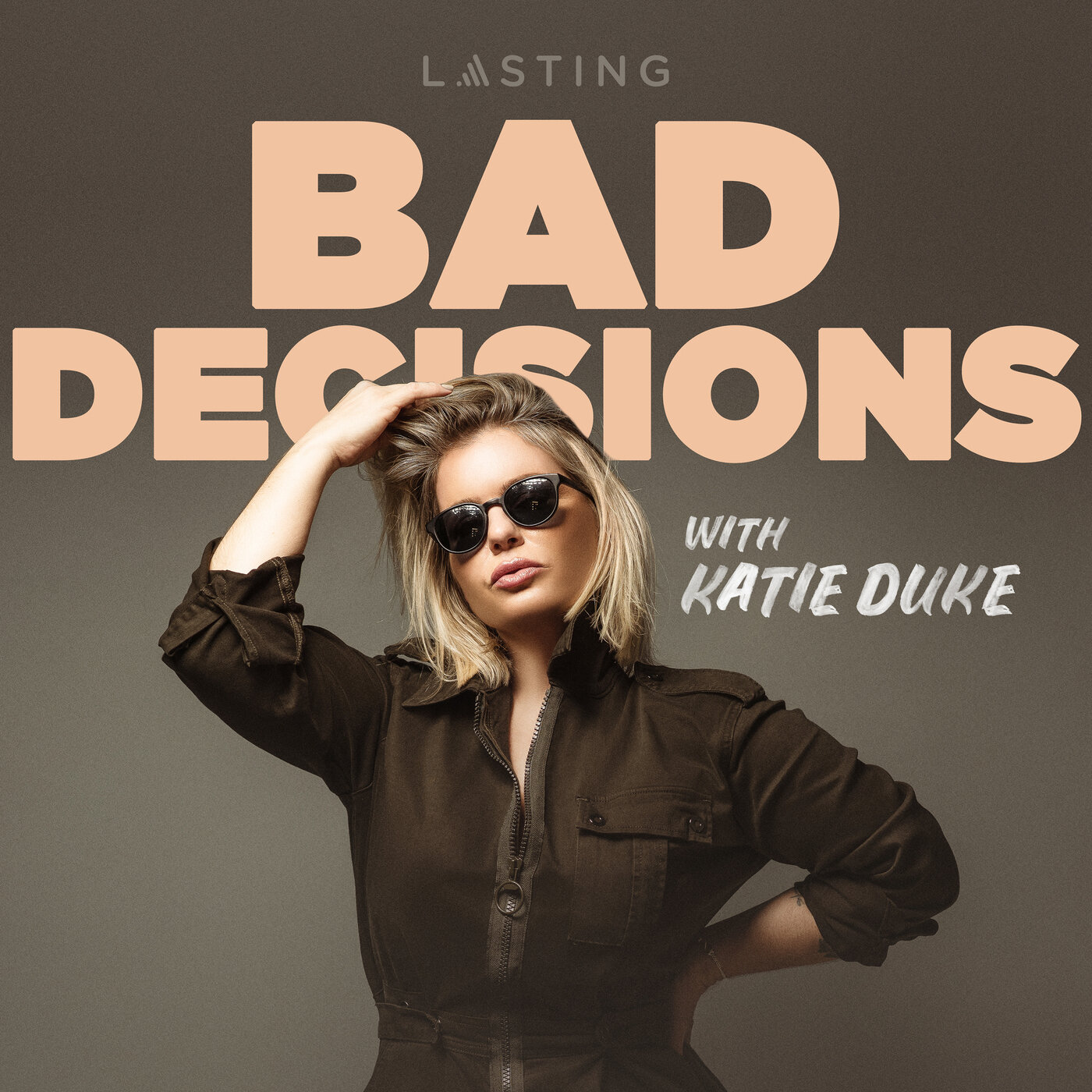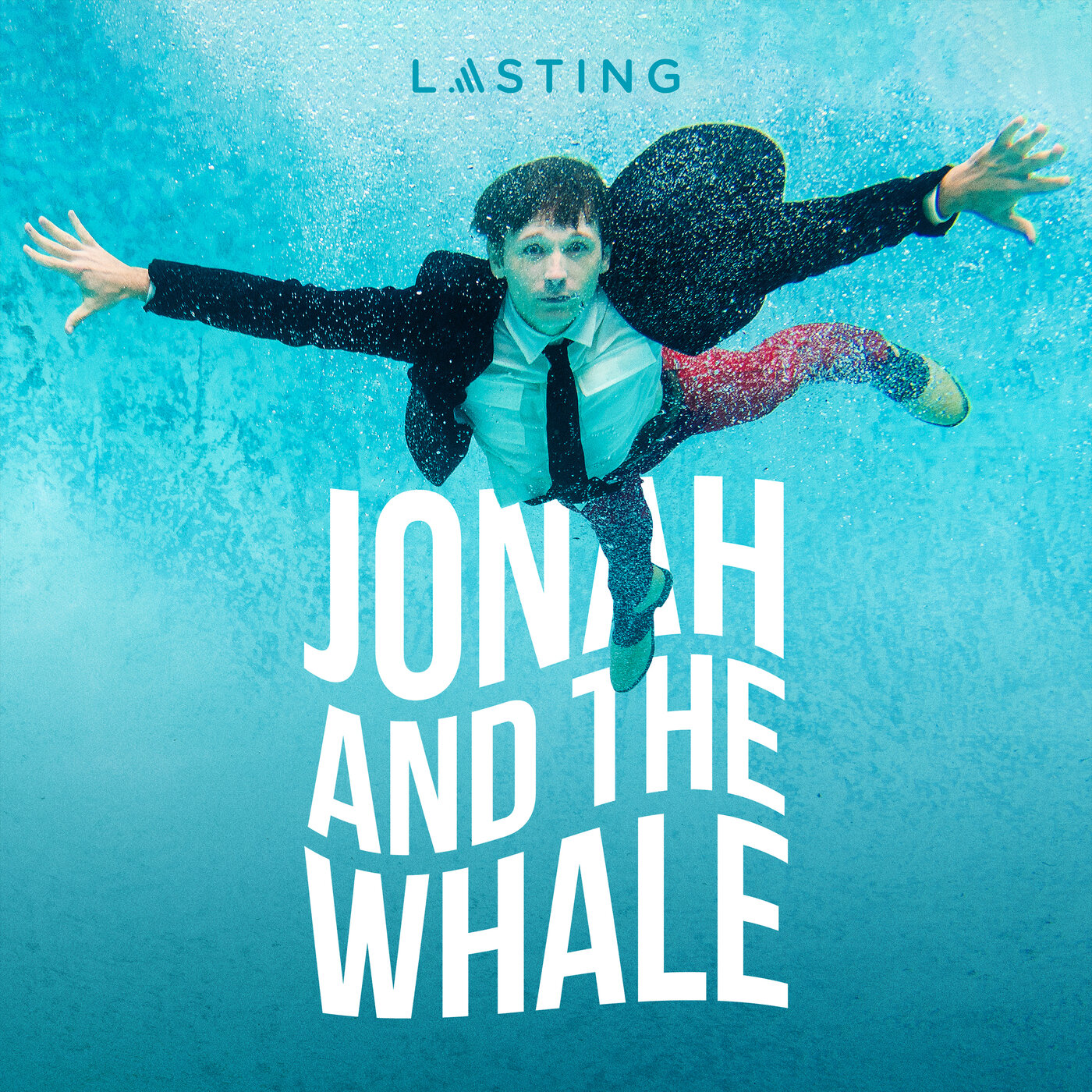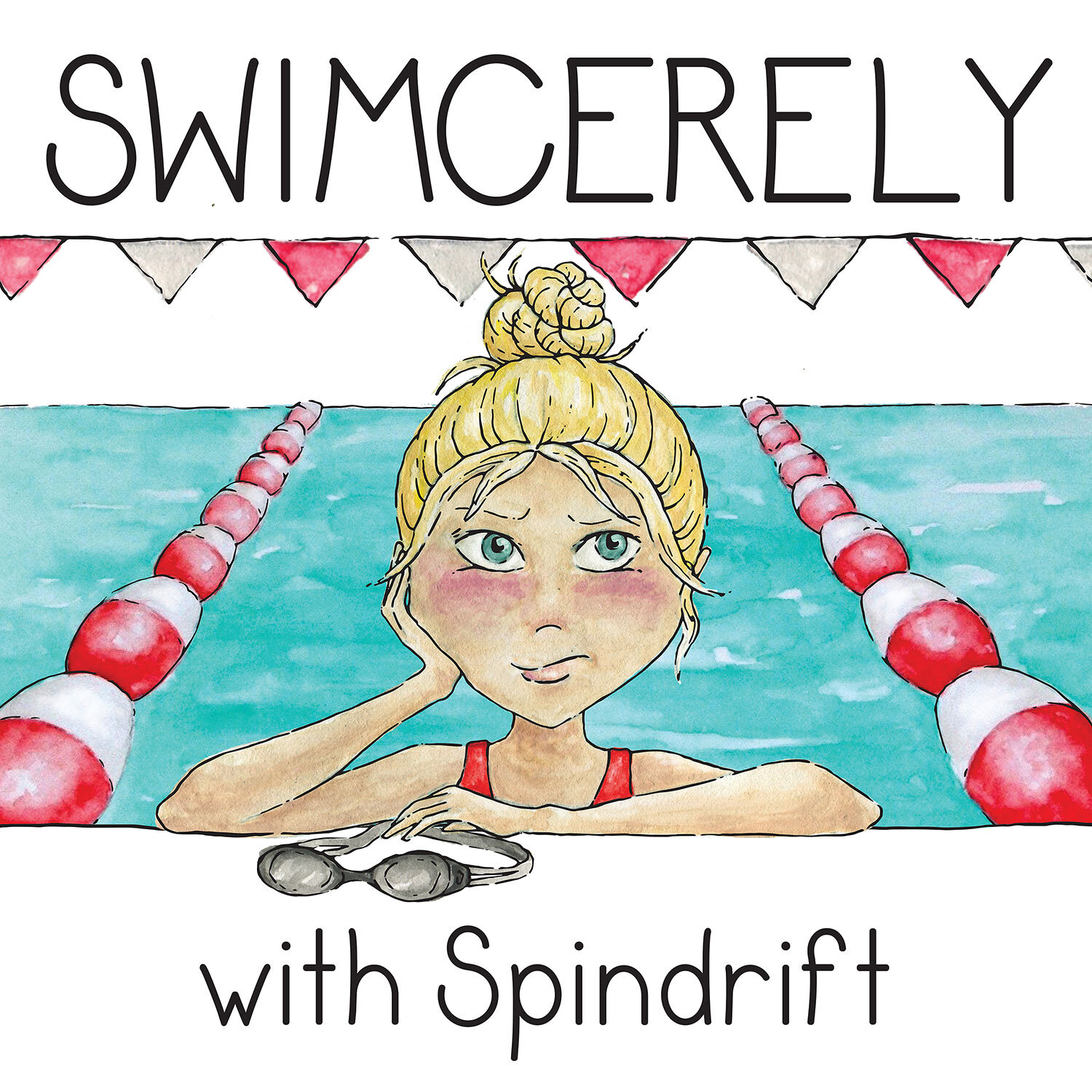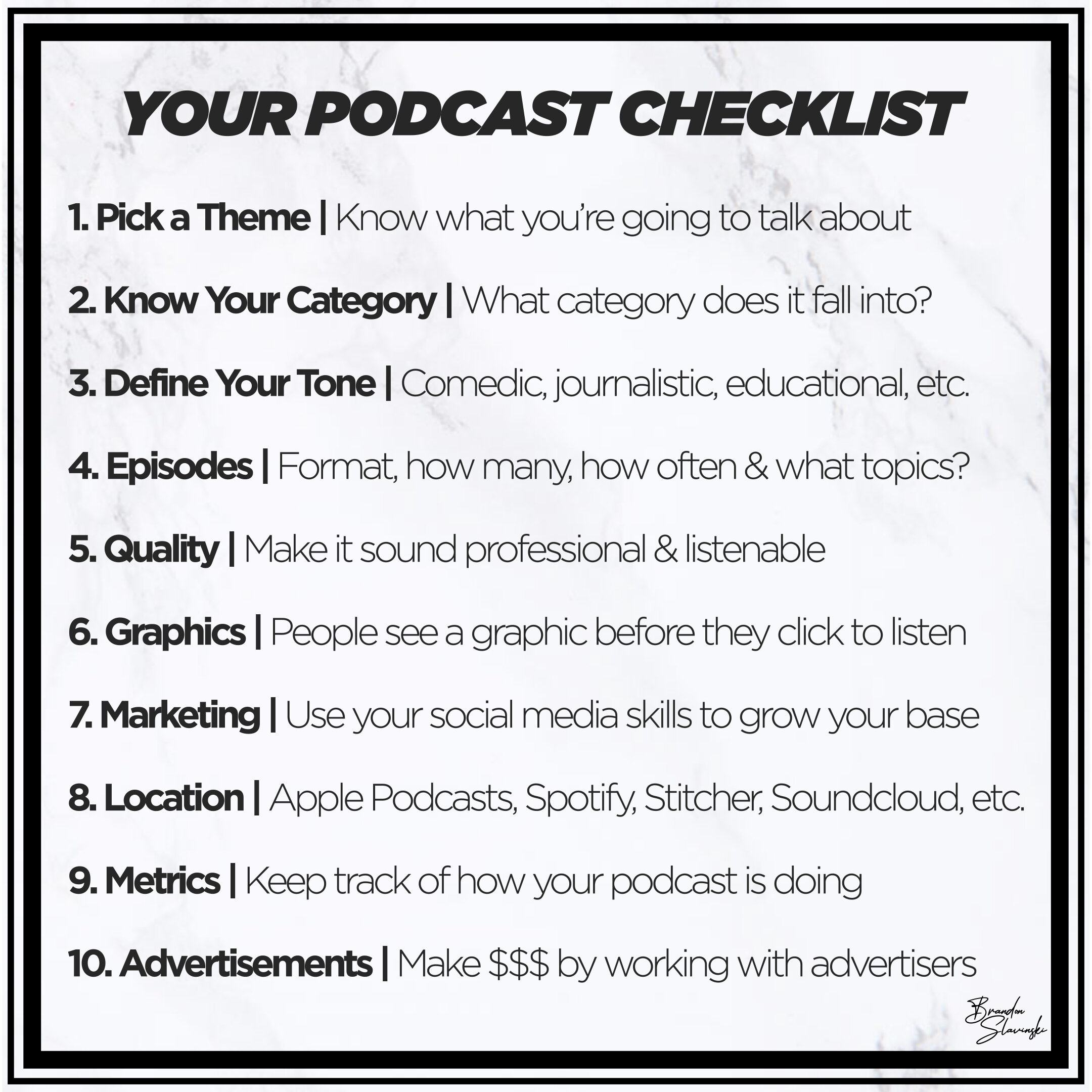There are currently well over 800,000 podcasts streaming all over the world. The competition is fierce and it’s constantly growing. Your podcast can be anything you’d ever imagine - below I’m going to provide some tools and information to help you succeed and grow your podcast audience. With enough effort - you could be the next chart-topping podcast.
This blog is also a great resource for audio engineers who are looking to expand their business into podcast recording & how to navigate new opportunities in another avenue of the audio world.
Over the past 4 years, in between other creative projects, I’ve worked on several podcasts. While each one has been different - they’ve all gained some interest for their respective communities in one way or another. Below are a few that have stood out:





NurseSpeak by NurselifeRN | Features stories from nurses around the globe
Jonah and the Whale | Takes listeners on a journey and explores the unbelievable experiences, or 'Underwater Moments', that make some of today’s biggest names who they are.
Swimcerely with Spindrift | Chatting with former and current collegiate, professional, sometimes Olympic swimmers about their lives, careers, likes, dislikes, etc.
Fresh Out Of Empathy | Discussing important topics that are happening nationally & globally and how they are effecting African Americans.
Bad Decisions with Katie Duke (Engineered one Episode) | Explores the life decisions that don’t always turn out like you expect.
The Palace Podcast | A combination of sports and music with a modern-day odd couple.
Each podcast has essentially fallen into my lap through connections I’ve made over the years. In many ways…I just get lucky to work on some of these. #blessed
Engineering for or producing a new podcast is always different and exciting. Whether you’re looking to create your own or have one professionally engineered - I’m going to go over a few processes I like to take in making a podcast successful.
1. Pick a Theme
Ebi from NurseSpeak reads a listener’s story for one of his episodes.
When starting a new podcast, one of the first steps is to have a topic in mind. This is your chance to come up with something unique and special to you. If you're reading this, then you most likely already have your topic ready to go. Whether it's something you're interested in, knowledgeable about, or find so amusing that you can't resist discussing it on a daily basis and are certain that others are talking or thinking about it too, there are plenty of opportunities to get creative here.
2. Know Your Category
It’s important to know what category/categories your podcast is going to fall under. There are so many, that the list spreads far and wide, here is the iTunes category & subcategory rundown:
Arts: Books, Design, Fashion & Beauty, Food, Performing Arts, Visual Arts
Business: Careers, Entrepreneurship, Investing, Management, Marketing, Non-Profit
Comedy: Comedy Interviews, Improv, Stand-Up
Education: Courses, How To, Language Learning, Self-Improvement
Fiction: Comedy Fiction, Drama, Science Fiction
Government
History
Health & Fitness: Alternative Health, Fitness, Medicine, Mental Health, Nutrition, Sexuality
Kids & Family: Education for Kids, Parenting, Parenting, Pets & Animals, Stories for Kids
Leisure: Animation & Manga, Automotive, Aviation, Crafts, Games, Hobbies, Home & Garden, Video Games
Music: Music Commentary, Music History, Music Interviews
News: Business News, Daily News, Entertainment News, News Commentary, Politics, Sports News, Tech News
Religion & Spirituality: Buddhism, Christianity, Hinduism, Islam, Judaism, Religion, Spirituality
Science: Astronomy, Chemistry, Earth Sciences, Life Sciences, Mathematics, Natural Sciences, Nature, Physics, Social Sciences
Society & Culture: Documentary, Personal Journals, Philosophy, Places & Travel, Relationships
Sports: Baseball, Basketball, Cricket, Fantasy Sports, Football, Golf, Hockey, Rugby, Running, Soccer, Swimming, Tennis, Volleyball, Wilderness, Wrestling
Technology
True Crime
TV & Film: After Shows, Film History, Film Interviews, Film Reviews, TV Reviews
When releasing you have up to 3 categories, or subcategories that you’ll get to choose upon uploading.
3. Define Your Tone
Tony shares his experience with listeners on NurseSpeak.
This point is surprisingly crucial: what do you want the tone of your podcast to be? Serious? Journalistic? Comedic? It boils down to knowing your current audience or the audience you're looking to engage with. The more you know about them, the better equipped you'll be to focus on what will entertain them. A dramatic shift from one tone to another between episodes can confuse your listeners. Your primary goal should always be to keep listeners engaged, entertained, informed, and coming back for more!
4. Episodes
Guests can help bring an entertaining element to your podcast and grow your listening base.
Having an idea of how many episodes you plan to produce can help you be more prepared for future releases, selecting guests (if any), and outlining each episode. Yes, I know, it's tempting to simply fly by the seat of your pants and see what happens, but having everything laid out will likely lead to greater podcast success.
It all depends on the kind of podcast you're aiming for, but knowing what you want to discuss in each episode helps prevent excessive overlap on the same topic. This can also assist you in preparing any specific information you're looking to address while recording. On top of all that, your engineer will thank you for having a game plan!
Keep in mind that having guests can help your podcast grow faster. If they had a great experience on your podcast, they should be willing to share the episode on their social media platforms, and their audience becomes your audience.
5. Quality
Alright, this is where I come in and help you shine the most! You certainly have every right to take on the challenge yourself and edit your own podcast – and sure, some of you might already have some editing skills. However, having an audio engineer do all the dirty work for you will pay off tenfold. Why? Not only does it put time back in your pocket to help you stay focused on upcoming episodes and other priorities, but people like me are used to sitting down and hacking away at audio files all day long – and we LOVE it! But before we dive into editing, let's discuss your options.
You can either go to a professional - or be a self-run operation. Of course you can contact me if you’d like to work together. If you’re looking to do an independent operation, here are some things to keep in mind:
Microphones | How good do you want YOU to sound? Great sound comes with a cost and practice in front of a microphone. The current most popular microphone you’re seeing in all the Podcast videos is the SHURE SM7B - but there are TONS of microphones that are great to choose from. I do recommend that you avoid any USB microphone though. I’ve never had a great experience with these.
Headphones | It’s always best to use headphones while recording. It’s likely that you already have some - but what about your guests? There’s options for interfaces that provide multiple outputs - you can potentially just use a simple splitter. Or just check your levels, unplug the headphones - and speak freely. It’s recommended that you use wired headphones - bluetooth can create additional latency that can be annoying and distracting.
Audio Interface | This is a device you’ll be recording into. There are MANY options - but if you’re a beginner you can either record directly into a computer using one - or have a stand-alone unit like a Zoom H6N. This also, again, depends on how many guests you’ll have. It’s important to multi-track your guests. Multitracking is when you’re recording multiple people at once and it separates each individual speaker onto their own track. Why is this important? Because you can edit around parts easier, cut people out, or adjust their levels as needed. If you’d like recommendations on audio interfaces please feel free to contact me!
Isolation | Are you recording in a big or small room? Use your ears - clap your hands and listen for any additional noise that’s bouncing off the wall.s Is there a way you can reduce echo/reverb in the room. Blankets, curtains, and if you really want to go all out - sound foam! You should give it a shot - you’ll thank me later.
Editing Software | Editing software can be frustrating for those who have never used it. Many podcasters looking to edit on their own are using a free software known as Audacity. I personally prefer to edit in Logic X - it provides me all the tools I need to record & edit and is very easy to navigate. There are also tools within certain software to remove extra noise, room reverb, and bring out the best in your voice. ALWAYS use the compressor and EQ - and if you’re new to the party, there are usually some presets that you can fidget with until you feel like it sounds just right. Before you release - make sure to listen to your podcast side-by-side with other podcasts you love to make sure you’re as close as possible to a professional sound.
Rendering | The FINAL step in this whole crazy process is rendering. This is where you determine the file type you need to release. MOST likely you’re looking to put out WAV files for the best format - and MP3 if you’re looking to just have something quick to share and get notes from your co-hosts before release.
JaTW host Josh Skinner chats with Alec Penix about overcoming obstacles.
In today’s times, something important to address is utilizing Zoom calls in your podcast interviews. Within Zoom there is a way to record the entire call - and multitrack each caller, making it easier to edit. While the tone may not be great - it keeps everyone safe & healthy!
If you’re looking to be in the big leagues - an audio engineer with a recording studio ready to use will eliminate some of the financial stress, learning curve & legwork above - granted they come with their own cost, but the benefits will show in the results of the quality of your podcast. Walk in, record, and either take the raw files to edit yourself - or have them polish & fine tune it. You can also consider taking the raw file and scanning over it for parts you’d like, time-stamping, and sending notes back to the engineer to cut it to your preferences.
A great engineer will already know what to do with minimal direction - while the host should guide the podcast conversation, an engineer also helps guide the direction of your podcast and eliminate unnecessary banter, breaths, mouth sounds, clipping, and bringing out the best in your podcast. Anything you can eliminate out of the episode without taking away the topic in conversation will keep your listener entertained and engaged. It also doesn’t hurt that your engineer is easy to work with and keeps the environment light & fun. You know where to find me!
6. Graphics
Just like the covers you saw at the beginning of this blog, it's important to have a great, eye-catching graphic to represent your podcast. The simpler and more appealing it looks, the more likely you are to get that click for a listen. If you're not a graphic designer, it's best to leave this task to the pros! Need help? I have some ridiculously talented friends with the skills to take your cover to the next level!
7. Marketing
Alright, so you’ve got your ducks in a row - great topic & tone, specific category, episodes outlined, peak quality, eye-catching graphics - it’s time to use social media to begin either engaging with your audience to generate interest. If you’ve already been recording, or even before you’ve started, but are committed to making it all happen you can always start early. Create your email, twitter, instagram, youtube and facebook accounts/pages - along with anywhere else you’re looking to grow your podcast. Cast a wide net that leads everyone to your podcast!
Take some clips from your recordings and put some samples out there - if you attach it to graphics, EVEN BETTER. Connect with online groups that may be interested in your topic and start a discussion. As said above in “Topic” - having great guests can help your podcast grow faster.
8. Location
Your podcast can live SO MANY places. With all the streaming platforms available today - each one has the potential to stream your episodes. Apple Podcasts is the best place to start along with Spotify. There’s also Stitcher, Youtube, and even SoundCloud - just to name a few. There are also services that give you the ability to post to multiple platforms at once like Buzzsprout.
9. Metrics
Finally, your podcast is out there and it’s gaining some momentum. Keeping track of your analytics is important to know your audience better. With Chartable you’ll be able to keep an eye on the charts, reviews, and other optics. All of this is valuable in your next step to success, which is…
10. Advertisements
This can be the most challenging part of any podcast - making money. If your podcast takes off - you’ll have the leverage to start finding companies interested in paid advertisements within your podcast; they may even just find you! Usually, within the first season - most companies won’t have much interest until they’re able to observe your successful metrics and determine whether or not it’s valuable to them.
The hosts of Fresh Out Of Empathy join forces to record their podcast.
Hopefully this has given you a good idea of what you can be excited about when starting your first podcast. Whether you’re just starting out, or are looking to take things to the next level. I’m always here for you - and you can contact me at any time to discuss more!
See something missing, or have additional resources you think should be added - send me a message via my contact page or leave a comment below.
Best of luck on your future podcast - stay creative, friends!





